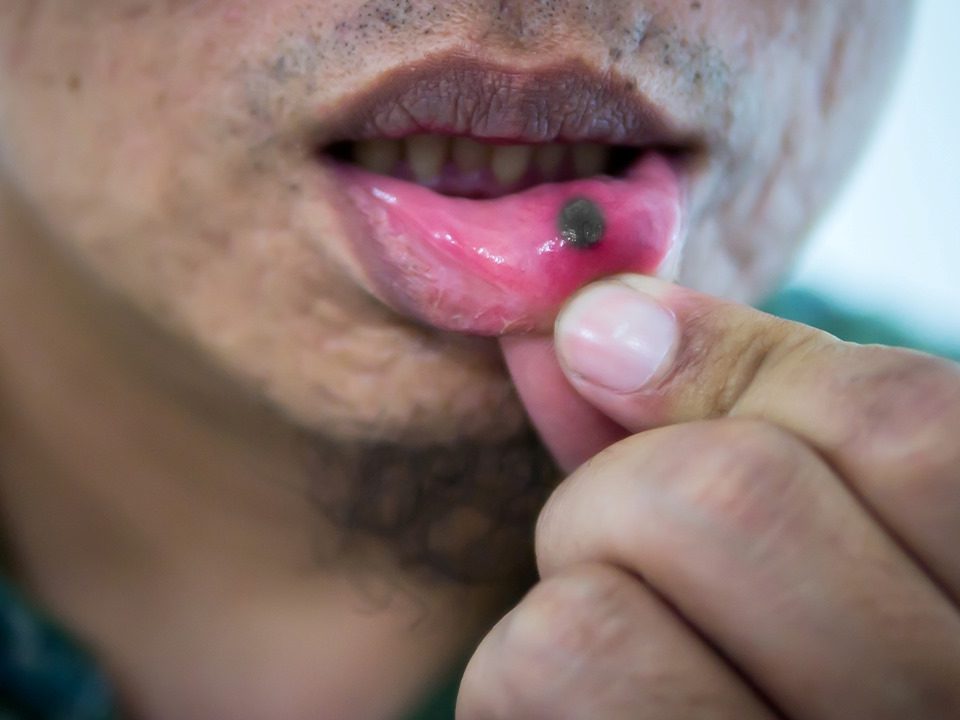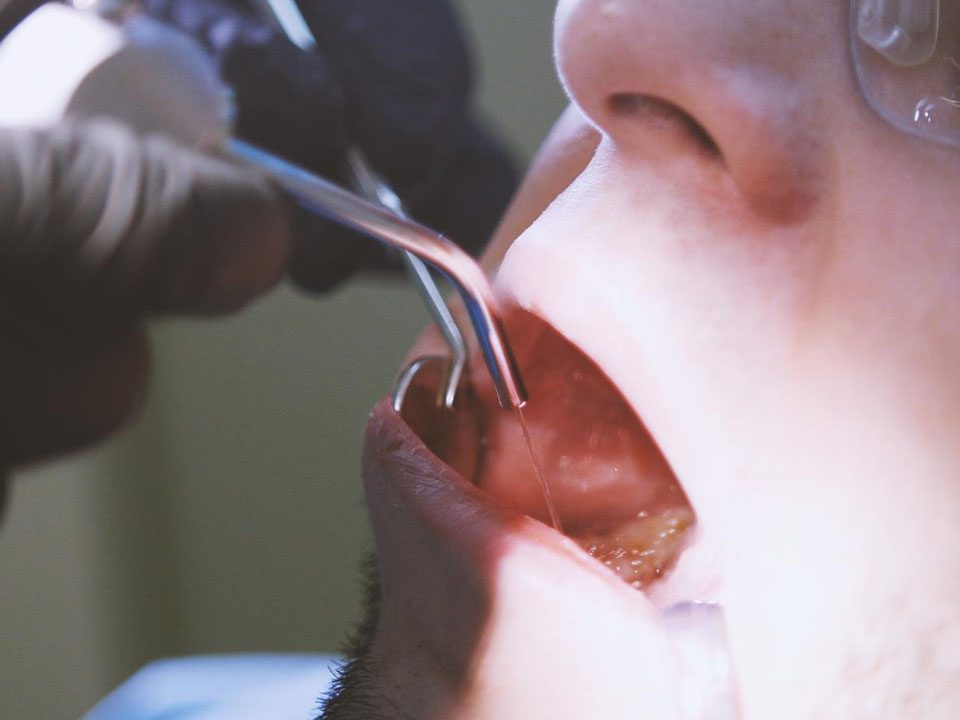
Is a Dental Drill Procedure Painful?
August 9, 2023
Which Dental Diseases Are Common in Old Age?
August 16, 2023Composite veneers are a popular dental treatment for those who want to improve their smiles and address various aesthetic dental issues. These small layers of composite resin are put to the front surface of teeth, transforming them instantly. However, the durability of composite veneers, like any other dental surgery, depends on several factors. This blog will examine the composite veneers lifespan in Phoenix, Arizona, the elements influencing their durability, maintenance advice, and more.
Factors Affecting the Longevity of Composite Veneers in Phoenix, Arizona
The composite veneers lifespan, which are dental enhancements, is influenced by:
- Material quality. High-quality materials are more resistant to damage and last longer.
- Dentist’s expertise. A qualified dentist’s placement is critical for long-term results.
- Bonding quality. Veneers stay in place because of strong bonding processes.
- Oral hygiene. Brushing and flossing regularly prevents stains and deterioration.
- Diet and lifestyle. To keep your attractiveness, avoid staining meals, alcohol, and smoking.
- Teeth grinding. To avoid pressure damage, address tooth grinding.
- Dental check-ups. Regular check-ups aid in the early detection of problems.
- Preventing force. Avoid using your teeth for anything other than eating.
- Natural wear. Veneers may need to be replaced over time.
- Trauma. During active activities, shield the veneers.
How Long Do Composite Veneers Last?
Composite veneers lifespan is variable, but with good maintenance, they can last from 5 to 10 years. The quality of the materials, oral hygiene practices, food, habits, and any potential dental concerns can all impact how long the veneers retain their appearance and effectiveness.
Regarding composite veneers lifespan in Phoenix, Arizona, various elements influence its longevity and appearance. The material quality used considerably impacts how effectively the veneers withstand wear and discoloration over time. Maintaining appropriate oral hygiene routines, such as brushing, flossing, and professional cleanings, is critical to preserving their aesthetic appeal. Furthermore, being conscious of food choices and avoiding chemicals such as coffee, tea, and tobacco will help to prevent stains and discoloration.
Night guards can protect veneers from damage caused by grinding while sleeping for people who grind their teeth. Regular dental examinations are vital because they enable the early detection and resolution of any problems that may emerge. It’s vital to remember that daily wear accumulates on veneers over time. Thus, regular care and attention are required. Accidents and other traumatic events can also impact veneers, making caution essential, especially during sporting activities. Finally, following your dentist’s maintenance instructions is critical to ensuring your composite veneers’ longevity and long-term beauty.
Note. Regular dental exams and adhering to your dentist’s maintenance recommendations might help extend composite veneers lifespan.
Do Composite Veneers Wear Away?
Yes, due to constant use and other causes, composite veneers can wear away over time. Chewing, brushing, and exposure to meals and drinks contribute to gradual wear. While composite veneers are long-lasting, they may thin out or develop surface roughness over time. This wear can cause changes in appearance and functionality. Composite veneers lifespan can be managed and monitored with good care, oral hygiene, and regular dental exams.
Signs of Wear and When to Replace Veneers
Here are the signs of wear and when to consider replacing veneers:
Signs of Wear
- Composite veneers can show indicators of wear over time that suggest they need to be replaced:
- Discoloration that does not react to cleaning may indicate veneer material wear.
- Small chips or cracks might form due to everyday use or an unexpected impact.
- If the veneer’s surface becomes rough or uneven, it may lose its original quality.
- Veneers may wear unevenly, resulting in an uneven smile.
- Sensitivity may indicate thinning veneers or an exposed tooth beneath.
- Veneers may no longer fit as securely as they once did, compromising comfort and look.
When to Replace Veneers
When to replace veneers is determined by their condition and the opinion of your dentist. Consider replacing the item if:
- Extensive chipping, cracking, and wear jeopardize the aesthetics and functionality.
- If the discoloration is significant and cannot be removed with cleaning, the item may need to be replaced.
- If the veneer structure has been affected, it is best to replace it to prevent additional damage.
- Veneers age naturally and may need to be replaced after their lives (5-10 years on average).
- If the veneer is affecting your oral health due to decay or other difficulties, it may need to be replaced.
- Your dentist will advise you based on their assessment of the condition of the veneers.
Maintenance Tips for Prolonged Composite Veneers Lifespan
Here are maintenance tips to extend your composite veneers lifespan:
- Oral hygiene. Brush your teeth with a soft toothbrush and non-abrasive toothpaste at least twice daily. Floss daily to avoid plaque development around the veneers.
- Gentle brushing. To avoid harming the veneer’s surface, use a light brushing approach. Avoid using abrasive toothpaste, which might scrape the surface.
- Non-abrasive products. To avoid scratching the veneer’s surface, use non-abrasive toothpaste and mouthwash.
- Dietary considerations. Reduce your intake of staining substances such as coffee, tea, red wine, and tobacco. After eating them, rinse your mouth with water.
- Hydration. Drink enough water to keep your teeth healthy and combat staining substances’ effects.
- Avoid chewing on hard objects. Avoid using your teeth to open packages or bite on hard items to avoid chipping or damaging the veneers.
- Sports mouth guards. If you participate in sports, wear a mouth guard to protect your veneers from damage.
- Night guards. Wear a night guard if you grind your teeth at night to prevent strain on the veneers.
- Regular dental exams. Visit your dentist for examinations and cleanings to spot problems early and keep the veneers in good shape.
- Address sensitivity. If you have increasing sensitivity, it could be due to veneer wear. Discuss it with your dentist as soon as possible.
- Take your dentist’s advice. Follow your dentist’s care guidelines for your veneers since they can provide tailored advice.
- Avoid nail biting and object chewing. Habits, including nail biting and pen chewing, can cause veneers to deteriorate over time.
- Consider whitening your teeth before getting veneers. If you intend to whiten your teeth before obtaining veneers, do it first to ensure that the color matches your chosen shade.
- Gentle teeth grinding. If you grind your teeth, seek guidance from your dentist on managing this habit to safeguard your veneers.
What Happens to Composite Veneers after 5 Years?
After about 5 years, composite veneers may show signs of wear such as coffee or tea discoloration, surface roughness, small chips or cracks, thinning that may increase sensitivity and alter the appearance, unevenness in a smile, color fading, weakened bonding leading to gaps, and a gradual decline in overall quality. Regular dental exams are essential to extend the composite veneers lifespan, monitor these changes, and determine whether maintenance or replacement is required.
How Often Do Composite Veneers Need to Be Replaced?
The composite veneers lifespan and the frequency with which composite veneers should be replaced varies based on factors like material quality, dental hygiene, food, lifestyle, and wear. Composite veneers should be replaced every 5 to 10 years on average. This timescale, however, is not fixed and can be influenced by individual circumstances. Regular dental check-ups allow dentists to evaluate the state of your veneers and determine when they need to be replaced to maintain their appearance and function.
Best Composite Veneers Services in Phoenix, Arizona
Enhance the beauty and confidence of your smile with our carefully produced composite veneers at Atrium Dental in Phoenix, Arizona. Our talented team is dedicated to creating stunning smiles that last. Schedule your consultation today to rediscover the brilliance of your smile and go on a journey to renewed self-assurance.
Conclusion
Composite veneers are a quick and reasonably inexpensive way to improve your smile. You may extend your composite veneers lifespan and enjoy their benefits for years by maintaining a healthy dental care routine and being careful of your food habits.
FAQs
Are composite veneers a permanent solution?
Composite veneers are not permanent and have a lifespan of 5 to 10 years, depending on various conditions.
Can I whiten my composite veneers if they become stained?
Unlike real teeth, composite veneers cannot be whitened using typical teeth whitening procedures. Replacement may be required.
Do composite veneers feel natural?
Yes, composite veneers are made to look and feel like real teeth, resulting in a smooth and comfortable appearance.
Can I eat hard foods with composite veneers?
While composite veneers are extremely strong, it is important to refrain from biting hard objects or using your veneers to open packages to avoid damage.
Are there any restrictions after getting composite veneers?
You may need to avoid certain hard or sticky foods at first, but once the veneers have been set, you can continue your normal diet.



